Fun Facts About the Human Body’s Most Fascinating Capabilities
Considered one of the strangest organic machines out there, the human body still has a lot of secrets and capabilities that are yet to be discovered. Our bodies have so much to offer and more than a few crazy tricks up their proverbial sleeves.
From the indestructibility of human hair to the cavity-preventing properties of kissing, we’re about to take you on a tour of your own body that will leave you amazed and deeply impressed. Read on to discover the human body’s most fascinating capabilities. By the end of this article, you’ll be proud to be in charge of such an incredible work of evolutionary art.
1. Human Teeth Are as Strong as Shark Teeth
If you had to guess, you’d probably say that sharks have tougher teeth than you. Surprisingly, though, human teeth and shark teeth have relatively the same density, mineral composition, and strength.
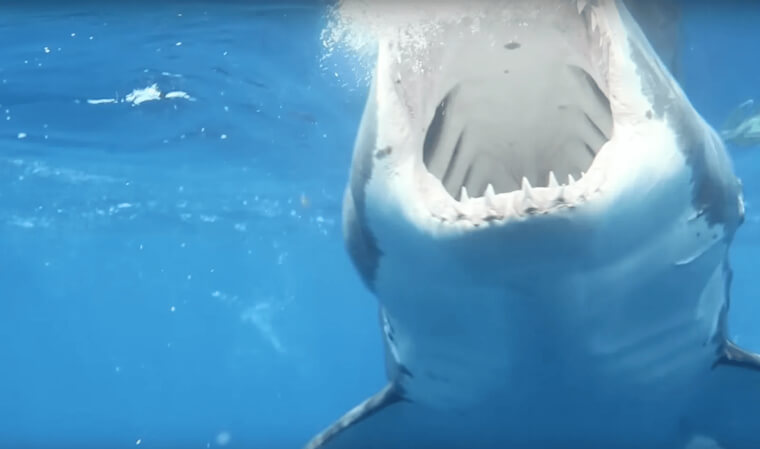
Sharkcrew
Sharks and humans both have enamel on their teeth, which is a big part of what makes them so durable. Sharks, unlike humans, cannot develop cavities. However, they do spend their lives in saltwater, so that certainly works in their favor!
2. Brain Power – Literally!
The electricity produced in our heads has more power than we realize. Electrical impulses and information are distributed on a daily basis among the brain’s billions of neurons. All that energy is what spurs you to action, but there’s far more to it than meets the eye.
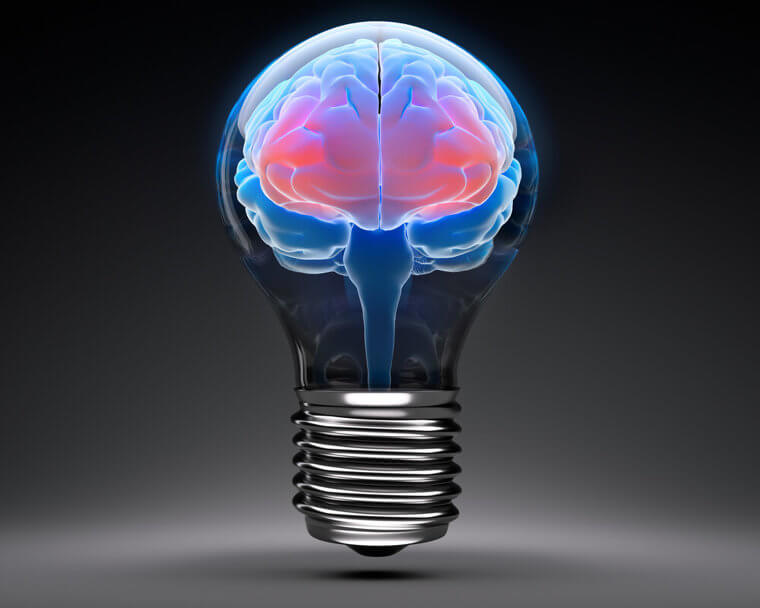
It’s safe to say that there’s a lot going on up there! The electricity created in your brain could power a light bulb if all of these signals and impulses were combined and directed into its circuitry. Amazing!
3. Heartbreak Can Get Physical
Some say that it’s an overreaction to say that your heart is breaking. However, the sensation is painfully real. For some people, it’s so real that they manifest the emotional pain into a physical condition known as heartbreak syndrome.

eatthis.com
It has been reported that some symptoms of this heart condition are shortness of breath, chest discomfort, and emotional stress. Does it sound familiar? These symptoms are felt by many when they go through a breakup. The only difference is that heartbreak syndrome doesn’t pass. In fact, it can lead to other health issues. So, take care of your broken heart when you’re feeling down!
4. Human Hair Is Nearly Indestructible
Our hair is said to be our crowning glory, but have you noticed that human hair is exceedingly strong? This feature of our bodies is so powerful that it seems only fire can truly destroy it. Who knew hair was so resilient?

@alipzn/ Unsplash
When left to its own devices, hair deteriorates incredibly slowly and appears to be unaffected by a variety of chemicals and acids. So, if you want something to last, make it out of your hair.
5. A Proven Way of Reducing Stress
In modern society, stress is the biggest challenge many adults are facing. As much as we want to avoid this feeling, our fast-paced world refuses to give us a break, making the struggle more unbearable. Have you heard of an effective way to relieve stress? This may sound strange, but blowing cool air on your thumb is a good way.
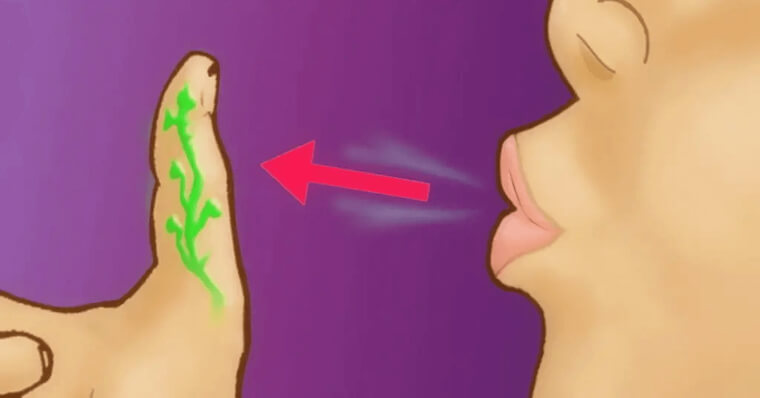
Relieved
This is strange but true – by simply blowing your thumb, you cool off and calm your nerves. It’s a surprisingly refreshing feeling. Give it a try!
6. How Clean Is Your Mouth?
We have no idea how many bacteria are dispersed around the planet. Fun fact: bacteria grow wonderfully well in the human body. They bloom in moist and warm environments, and our bodies offer both. Just your mouth alone contains more bacteria than there are people on the planet. How wild is that?

Oleg Magni
Scientists conducted studies and found at least 615 bacteria types in our bodies. The same study also showed that the bacteria numbers in our mouths can easily get into multiple billions.
7. Babies Have More Bones Than Adults
Want to hear another mind-boggling fact about human bodies? Did you know that little babies have more bones in their tiny bodies than adult humans? This sounds ridiculous, but there’s a reasonable explanation behind it – we promise!

Pxfuel
A simple explanation for this odd phenomenon is that every human body is composed of at least 270 bones. But as time goes by, most adults’ bones merge, leaving them with somewhere in the vicinity of 206 bones.
8. Your Skin Weighs More Than You Think
Many different parts make up the total weight of your body. While you know your skin is contributing to the overall number on the scale, can you believe it actually makes up 16% of your total body weight? The skin of the average adult weighs in at around two pounds.

Audrey Fretz/ Unsplash
Here’s an unsettling addition to this fascinating fact: Your skin could cover approximately 22 square feet if peeled off and stretched out. Let’s not think about that for too long, though!
9. Your Kidney Is an Incredible Filter
Your kidney is another crucial and strong organ in your body. This particular body organ’s main function is blood filtration. It can filter your blood up to 25 times a day, totaling about 180 liters of processed blood.
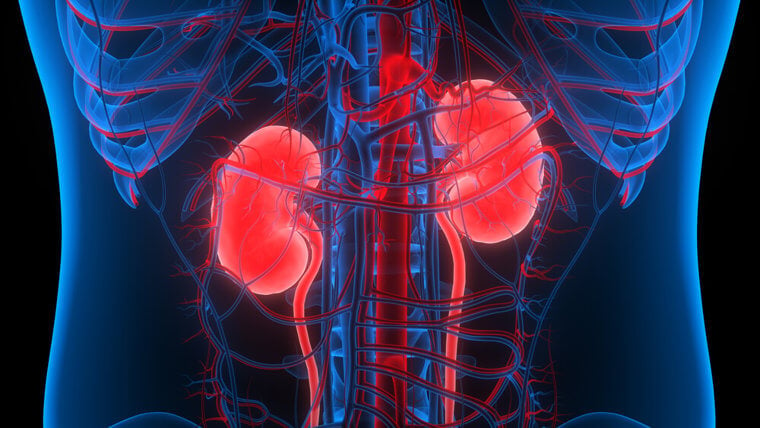
mohamed_hassan
As we all know, the kidney is crucial because of its work. It helps our body function well and keeps our blood healthy. A typical body has about seven to eight liters of blood in total.
10. You Can Survive Without Some Organs
This may sound impossible, but it is true. For instance, having two lungs is completely normal, but losing one of your lungs would be okay – you could live a normal life. The same goes for our kidneys. Being left with one kidney may sound unhealthy, but you can be as functional as those with complete organs.
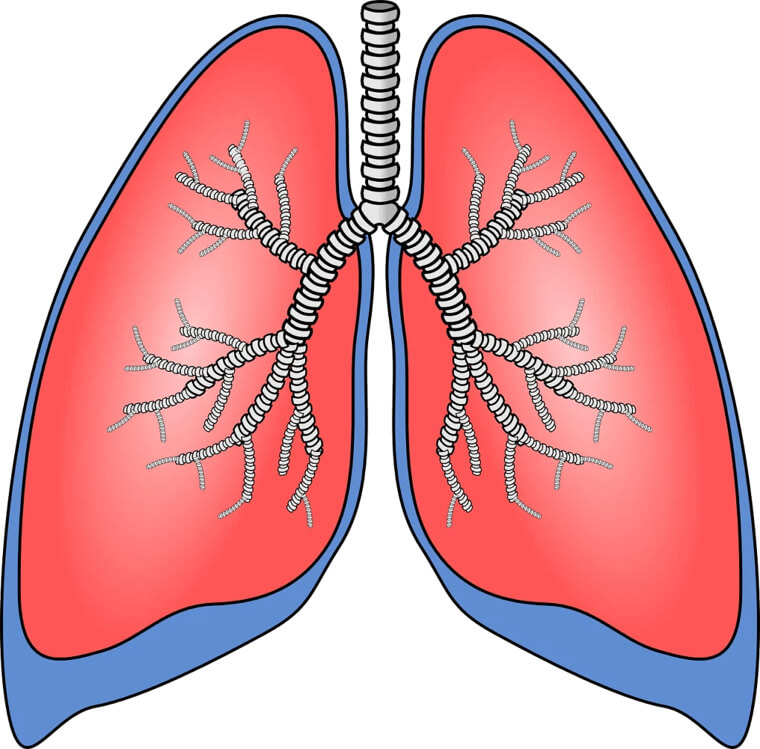
OpenClipart-Vectors
You won’t be able to exercise in the same way that someone with two lungs can, and the same is true for the kidneys. However, you can still live a long and fulfilling life.
11. Your Heart is a Blood Pumping Champion
Blood is constantly pumped by the heart, which is what keeps us alive. But did you know that a person’s heart may pump up to 200 million liters of blood in their lifetime?
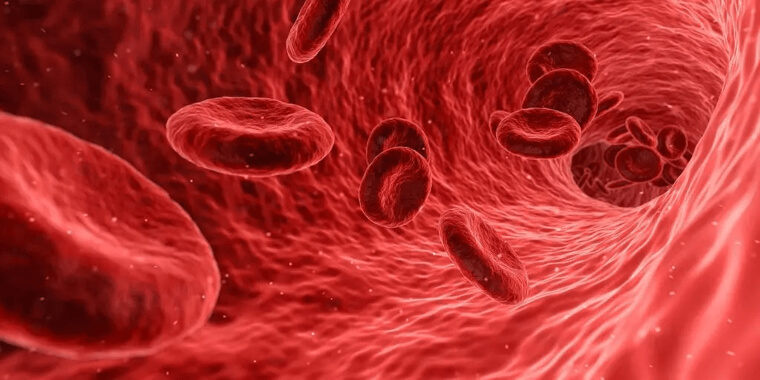
Pixabay
The heart contracts 100,000 times per day and is constantly pumping blood. Just as sharks never stop swimming, your heart never stops working to keep blood flowing around your body. Exercisers can pump blood six times faster than the average person.
12. You Can’t Swallow and Breathe at the Same Time
When you read the title, you were probably eager to give it a shot! It may appear simple, but it is practically impossible to accomplish. Humans, unlike certain animals, cannot swallow and breathe at the same time.

Steven Depolo
While you won’t be able to do it, trying to achieve this impossible feat could put you in danger of choking. So, we ask that you take our word for it. If you want to test the theory, dust off your old anatomy book and take a look at the details of the human throat.
13. Your Body Knows When You’re Deep Underwater
Our bodies have the ability to achieve mind-blowing things on their own. A “diving reflex,” which is induced when one is submerged underwater, is one of these things. Specific body systems shut down as a result of the action, and the body begins to save energy for later.

Guduru Ajat Bhargav
Additionally, psychological changes occur when we are immersed in water, and they intensify the deeper we go. This has led academics to assume that humans have a history of swimming and deep diving.
14. Your Kidneys Aren’t Even
Since we’re already talking about organs, here’s a fun tidbit about our kidneys. They are not usually arranged symmetrically, even if they are identical. Take a look at the image below to get a better idea of what we’re talking about.
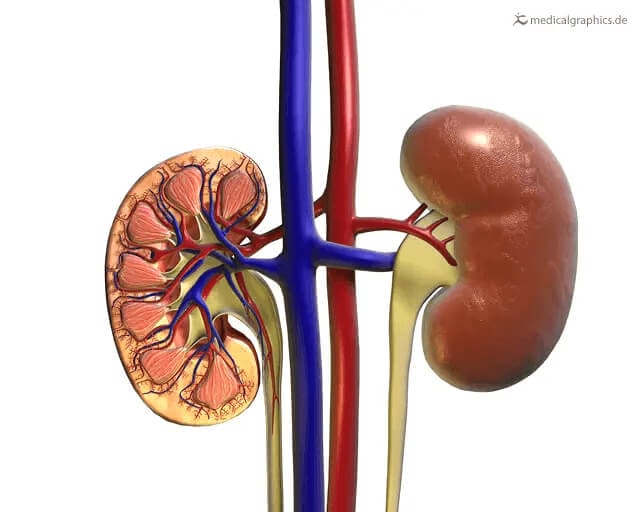
MedicalGraphics
In most bodies, the kidneys are positioned differently, with the left one slightly higher than the right. This is a nice reminder that perfect symmetry isn’t natural. Inside and out, we are beautiful just the way we are!
15. Your Body Will Eat You When You Die
To be honest, this one is a little morbid, but it’s still interesting. The very enzymes and bacteria that help you break down food and nourish your body will consume you when you pass away and stop feeding them.
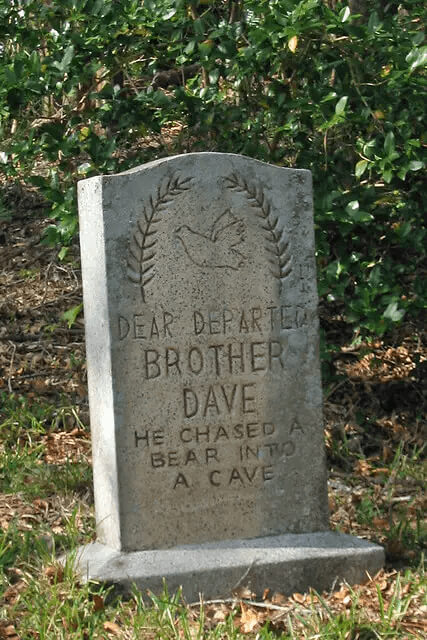
Dave & Margie Hill
Enzymes continue to act after death, feeding on fluids created during autolysis, a process that occurs when a person dies. It’s an efficient system but it’s best not to dwell on it for too long!
16. Your Tongue Print Is Unique
Fingerprints aren’t the only feature of our bodies that are unique to each individual. A person’s tongue appears to be distinct as well. Of course, it would be highly impractical to have the police take people’s tongue prints when they commit crimes!
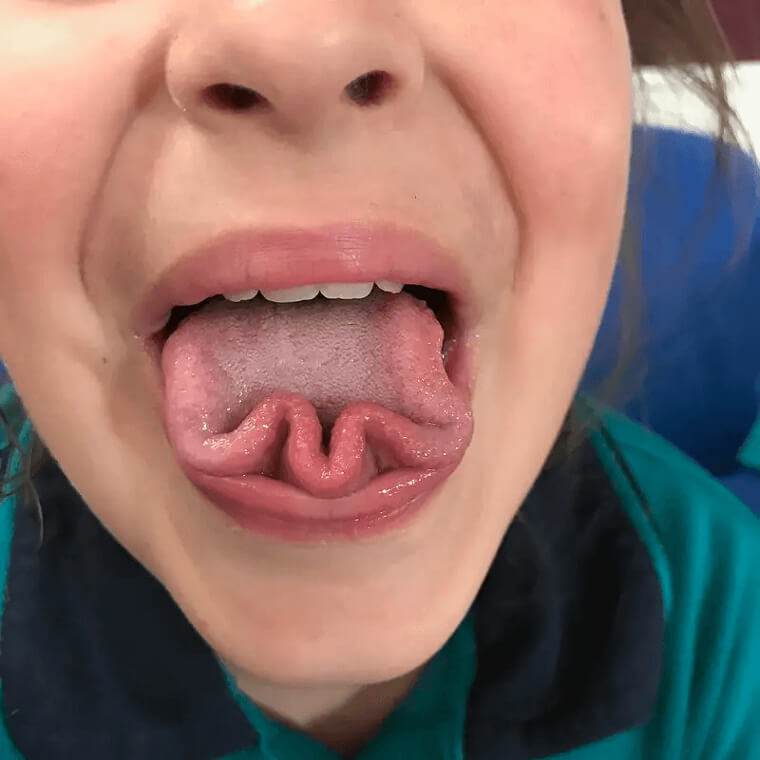
Vagawi
Even if the chances of someone asking for a tongue print are quite remote, it’s still fascinating to know that they exist. To get a clear print of a tongue, 3D imaging would be required.
17. Your Bacteria Weigh Three to Five Pounds
Yep, we’re back to bacteria again! Human bodies are breeding grounds for bacteria. Like it or not, you are an ecosystem, and so long as you live a healthy life, you can think of yourself as a majestic landscape, like the Amazon rainforest.
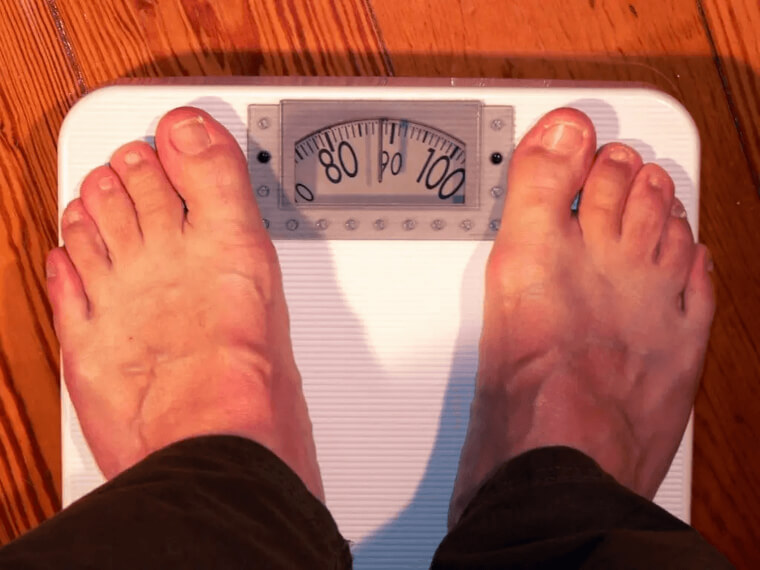
pxhere
A human body, according to scientists, carries three to five pounds of bacteria with it at all times. This bacteria is enough to fill a full soup can and equates to around 1% to 2% of your body mass.
18. You May Have Had Silent Cancer
Your body may have fought cancer in the past without your knowledge. While your cells are constantly dividing, your body is capable of detecting any faults or strange replications. When a cell realizes something isn’t quite right, it can generally figure out that it’s broken and destroy itself before things get out of control.
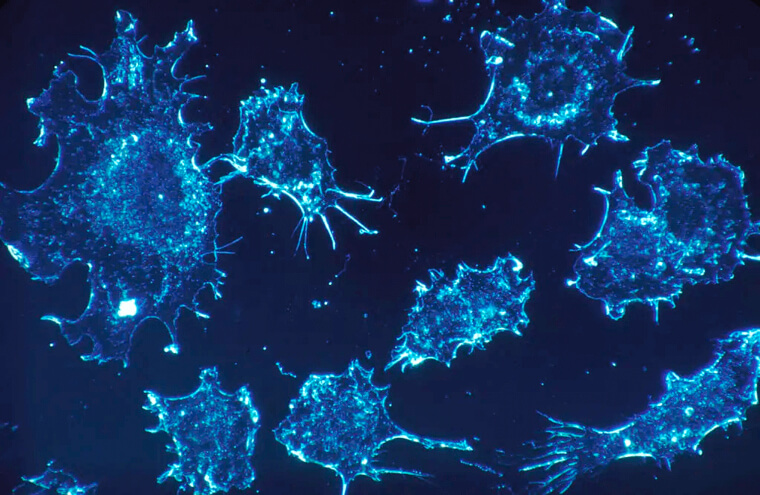
National Cancer Institute
Cancer is a proliferation of faulty cells that haven’t triggered this self-destruct mechanism. So, if all is going well inside your body, it’s quite possible that cancerous cells emerged but quickly destroyed themselves, with you being none the wiser.
19. Some Astronauts Grow in Space
Because astronauts aren’t constantly weighed down by gravity in space, their bodies appear to be able to extend out further than they would on Earth. This means that many of them quite literally get taller in space.
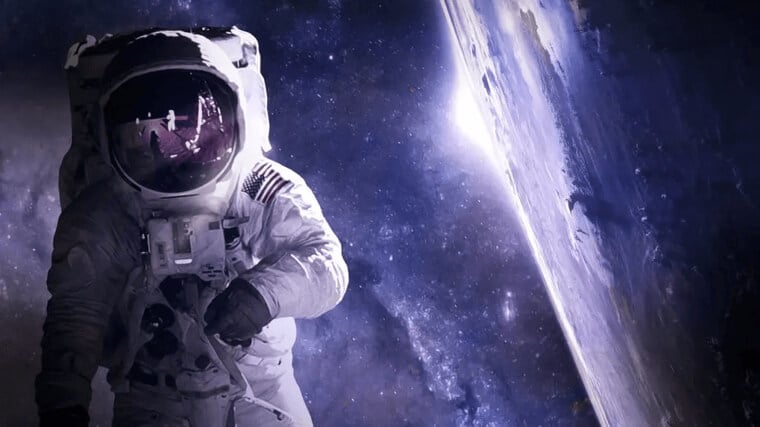
Yuri_b
The majority of astronauts return from space slightly taller than when they left. Those who spend a year in space gain up to two inches in height. However, as the effects of gravity take hold again, they generally lose this height. It’s fun while it lasts, though!
20. You Glow in the Dark
Humans can glow in the dark. Once again, this may sound like a fabrication, but we can confirm it is 100% true. The human body appears to be bioluminescent, meaning it can emit light in the dark.
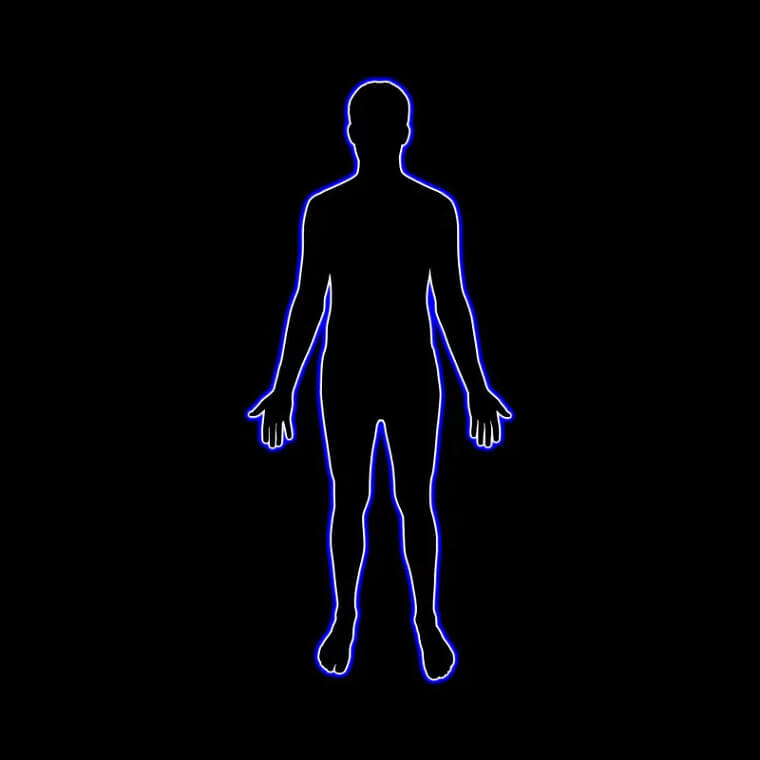
J E Theriot
The light is just too faint to be detected with the human eye. It takes the right instrument to pick up our glow. Luckily, our eyes are capable of seeing the bioluminescence of some creatures, like jellyfish and fireflies. They have this property in much higher doses than we do.
21. Each Breath Gives Your Brain Five to Ten Minutes of Life
We all know the brain is one of our most powerful organs, but did you know it can only survive for five to ten minutes without oxygen? This is why a continuous oxygen supply is central to our survival.
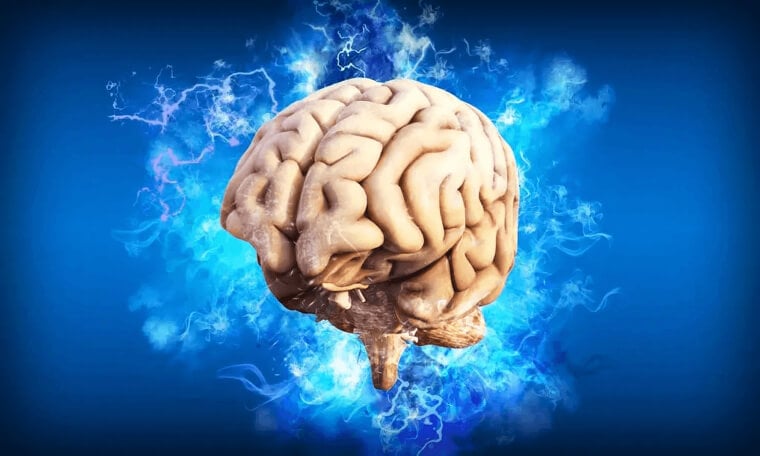
TheDigitalArtist
Without oxygen, you will go unconscious after a few minutes, but your brain will continue to work for a long time after that. Even if your heart stops beating, your brain can keep going for another six minutes.
22. Our Hearts Are Powerful Pumps
Although this may appear strange to some, it is a fascinating reality about our bodies. The heart is one of our most powerful organs, and it functions as a living pump that exerts tremendous pressure each time it beats.
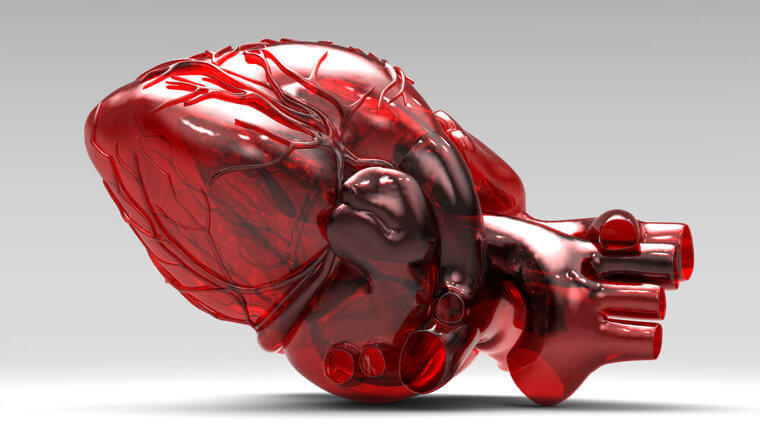
truckassistances.us
This pressure has the potential to send blood flying 30 feet across a room. Of course, if that’s happening, you won’t have time to marvel at the distance you achieved! You’ll be hoping that a trained medical professional is on hand to help you out.
23. Pregnancy Reduces the Size of a Woman's Brain
The brain shrinks a small bit while women are pregnant. This is just one of many changes that their bodies go through. It can take up to six months for a person’s brain to return to its pre-pregnancy size following childbirth.

Meaganjean
Though the difference in brain size isn’t significant, it can be noticed by many women. Hence the term “baby brain.” When the infant is born, however, these alterations begin to reverse almost immediately. So, don’t go teasing your poor mom about having a small brain!
24. Embryos Develop Fingerprints Surprisingly Early
Following the growth phases of an unborn child is one of the most fascinating things a pregnant woman can do. An embryo’s fingerprints are fully designed by the 17th week of pregnancy.
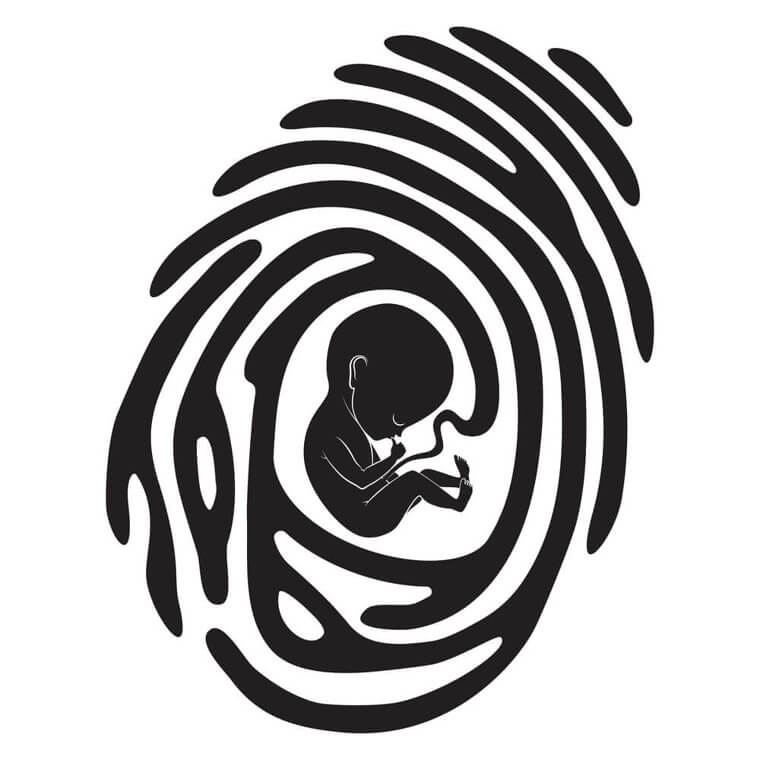
jhnri4
Those fingerprint designs will never change, and each and every fingerprint is absolutely unique to its owner. How amazing is it that these signatures develop at such an early stage in life? We can’t help but wonder when the unique tongue print we learned about earlier will develop!
25. How Big Is Your Brain?
While it’s a little unsettling to consider such things, if someone were to pull your brain out and stretch it out to its full extent, it would take up the same surface area as the pillow you sleep on every night. Creepy!

@nathangwaters/ Unsplash
The skull, as it turns out, is quite small compared to the surface area of the human brain. Thankfully, our brains are able to comfortably work in this compact space. However, if you were to smooth out every wrinkle, your brain would reach an impressive size.
26. You Are Made of Ancient Stardust
The atoms that make up your body aren’t all that different from the ones that comprise stars and galaxies. Supernovas cause stars to burst, and all this movement triggers endless change throughout the universe. This is how life on Earth began.

NASA Hubblesite
Stardust makes up 93 percent of the mass of a person’s body. While many doubters may not accept this, it has been independently validated by scientists on multiple occasions. Isn’t it kind of beautiful to think of yourself as an ancient cosmic being?
27. You’re Probably Shrinking
You’ve probably wondered why elderly individuals appear to be shorter than when they were younger, and it appears that there’s an explanation. People get shorter as they get older. Is this to do with gravity?

Domdomegg
In a way, yes – gravity has a lot to do with it. Over the course of our lives, the discs in our vertebrae are gradually flattening at a rate that is barely apparent. However, after the age of 30, most people will lose about half an inch every ten years!
28. You Make Bucket Loads of Spit!
Believe it or not, the amount of spit we create in our mouths on a daily basis is the equivalent of about two to four water bottles worth. Simply thinking about food can activate a person’s salivary glands, resulting in an immediate increase in saliva production.
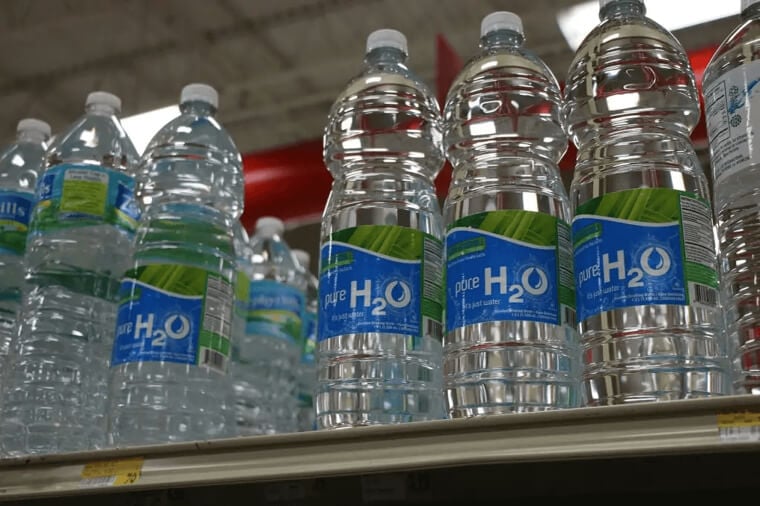
Denvit
Similarly, the glands work harder than usual when you eat a meal. Though you’re rarely aware of this bodily function, it’s always working away, protecting your mouth and keeping it at an ideal pH level. So, don’t be too grossed out!
29. The Cornea of the Eye Lacks Its Own Blood Supply
Corneas appear to be the only elements of the human body that aren’t supplied with blood. You might wonder why that is. Well, the outer components of the eye must be transparent in order for light to pass through and enable vision, and blood isn’t translucent.
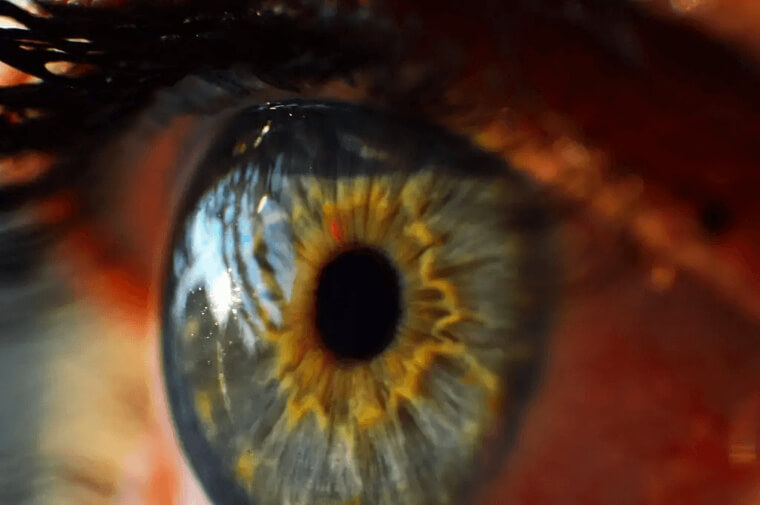
Max Pixel
There are no arteries connecting the cornea to the rest of the body. Tears, nerve fibers, and aqueous humor (a translucent inner-eye fluid) provide each of your corneas with the nutrition they need to function.
30. Your Masseter Is Your Strongest Muscle
There is no denying that our bodies are extraordinarily strong, with some sections being stronger than others. But did you know that the masseter is your body’s most powerful muscle? If you’re not sure where the masseter is, it’s the muscle that moves your jaw.

Pxhere
The molars in your mouth can exert up to 200 pounds of force each time you take a bite, and a big part of this power comes from your jaw muscles. So, next time you take a bite out of an apple, say thank you to your masseter!
31. You Are Shorter at Night Than in the Morning
It turns out that when you get up in the morning, your spine is lengthened, so you are the tallest you will be that day. Inside of us, we have a gelatin-like substance that acts as a cushion between our discs. It becomes somewhat compressed throughout the day, which is why we shrink.

Devon Weller
The material travels about when we sleep, allowing our spines to decompress and lengthen out again. So, when you get up each morning, take a moment to appreciate yourself at your full height!
32. You Are Losing Taste Buds
Isn’t it disheartening to learn that as we get older, half of our taste receptors may vanish? While humans are born with approximately 10,000 taste buds, as they grow older, things begin to change slowly, and in this case, for the worse.
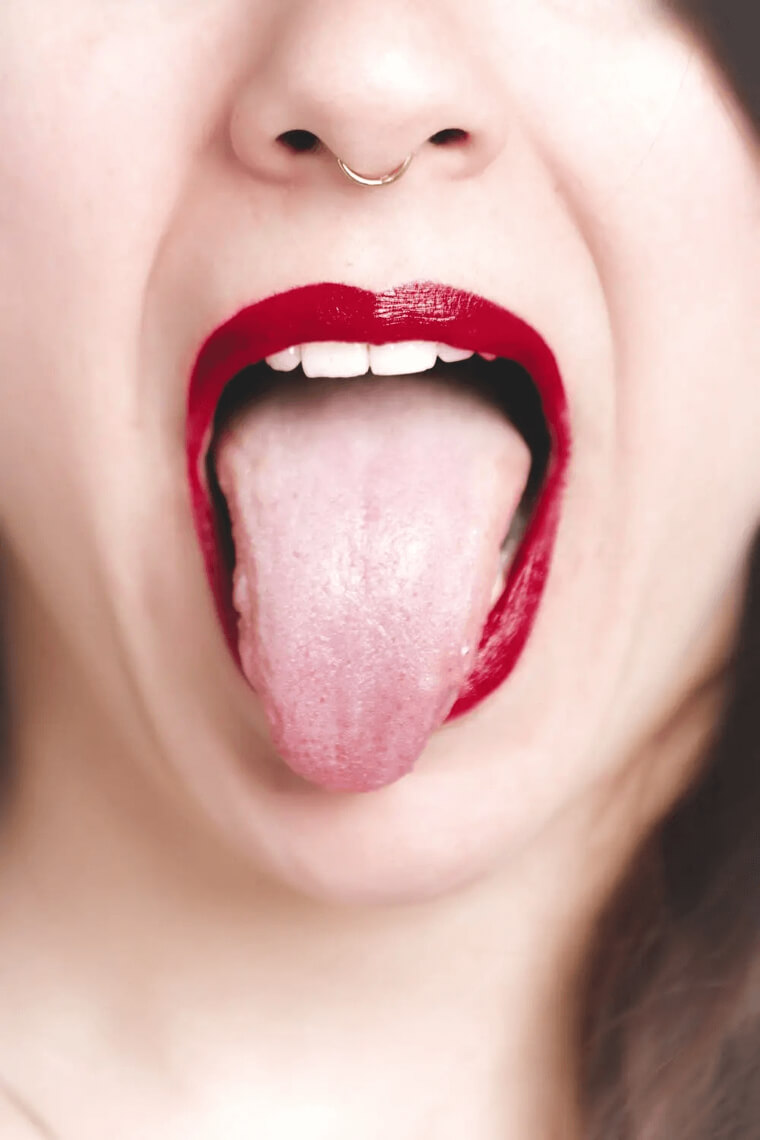
Oleg Magni
Taste buds, in fact, only endure around ten days before they are replaced. However, as you age, your body puts less effort into replacing the dying taste buds. So, by the time you hit 60, you’ll likely have half the taste buds you had when you were younger.
33. The Highest Fever Ever Recorded Was 115 Degrees Fahrenheit
It’s difficult to picture a body so hot, but it appears that 115 degrees Fahrenheit was the highest temperature ever recorded in a human. In case you were wondering, the individual survived this crazy experience!
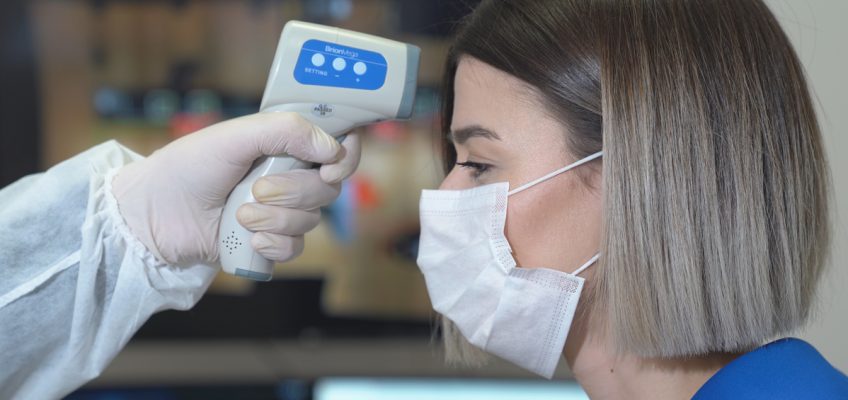
complyright.com
To put things in perspective, the average human body temperature is 98.6 degrees Fahrenheit. Any temperature exceeding 100.4 is cause for alarm, and most people’s organs begin to fail when their temperature exceeds 107.
34. Babies Blink Less Than Adults
On average, an adult blinks ten times every minute. Babies, on the other hand, blink significantly less frequently than adults. When they are awake, they blink once or twice a minute and barely close their eyes.
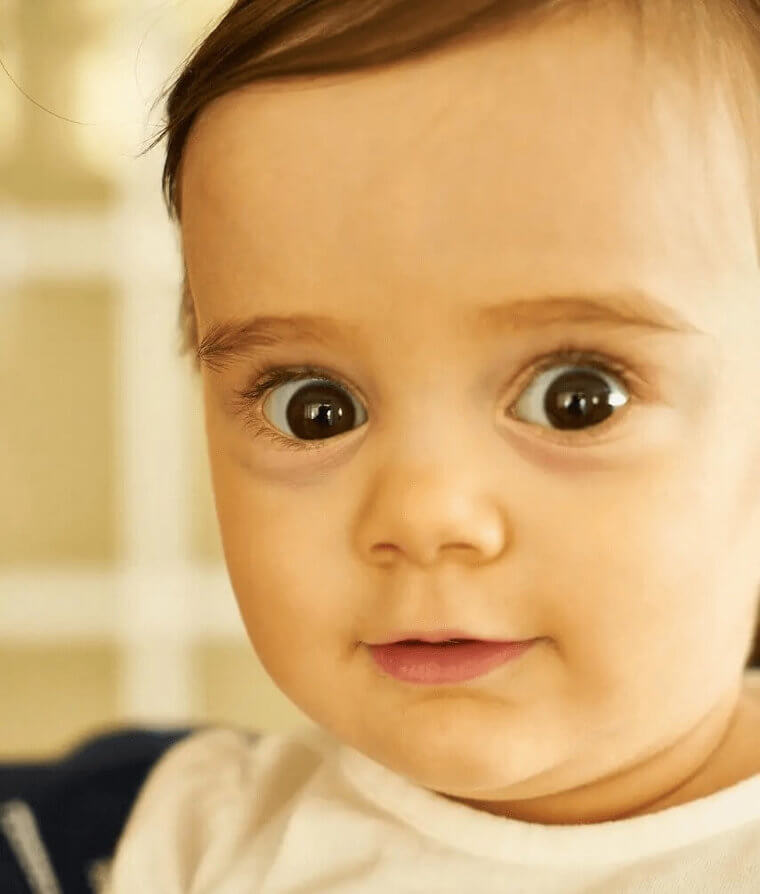
Engin_Akyurt
This could be due to the fact that blinking keeps the eyes lubricated, and babies’ eyes may not require as much lubrication as adults. The next time you’re babysitting, pay attention to how much the little one blinks. You’ll soon see we were telling you the truth!
35. Tumors Can Grow Their Own Teeth and Hair
As if there wasn’t enough suffering and trouble already, it turns out that a specific type of tumor can grow teeth or hair. These cysts, known as teratomas, generally develop in highly sensitive places.
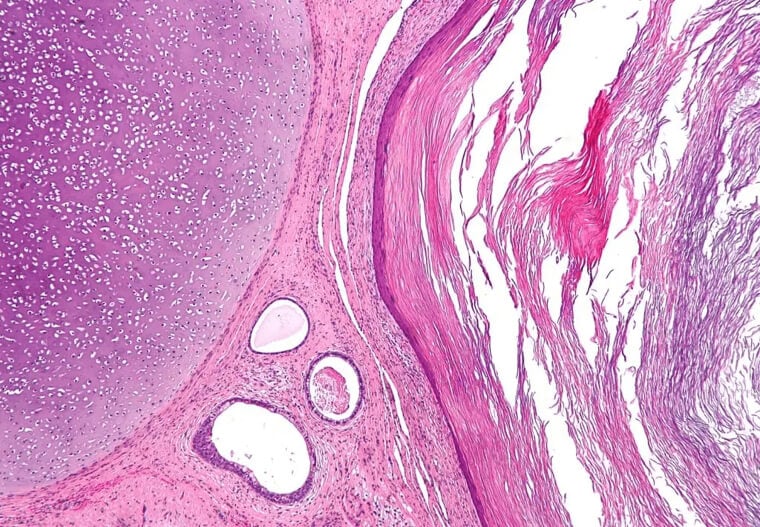
Nephron
Teratomas are generally found in ovaries or testicles and may be benign or malignant. The creepiest thing about a teratoma is that it can grow teeth. This is due to the fact that they develop in regions of the body that contain plenty of stem cells.
36. Your Eyes Are Closed for Around 10% of Your Waking Life
While some people blink far more frequently than others, the majority of people blink 10 to 20 times per minute without even realizing it. This means your eyes spend far more time closed than you realize.
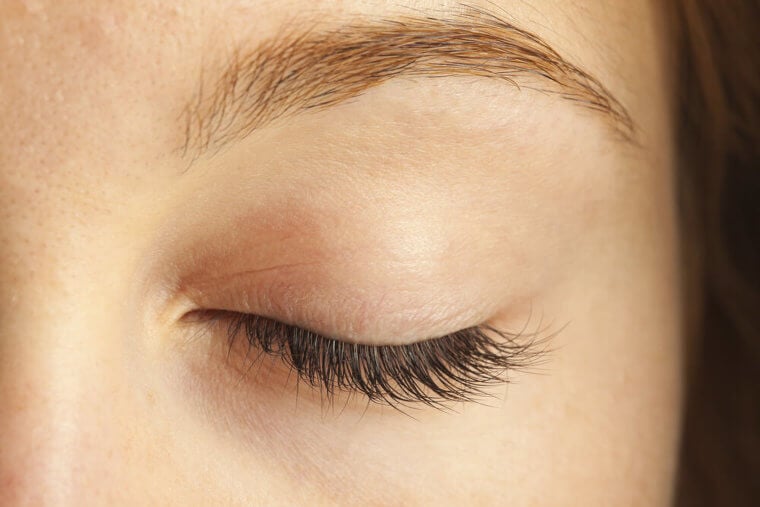
Openclipart
Because we blink so frequently on a daily basis (even if a blink just lasts a fraction of a second), most of us have our eyes closed for around 10% of the time we are awake. It’s nice to know our eyes are getting plenty of breaks!
37. You Could Make Soap from Your Body Fat
Needless to say, this one varies significantly from person to person, but it’s astonishing to think that our bodies can provide enough fat to make 10 bars of soap. Would you donate a pound or two of body fat in exchange for some lush, scented soap bars?

Horia Varlan
The number of soap bars produced would largely be determined by the amount of fat stored in your body. This seems like an efficient use of fat. However, the donation process might be a little unpleasant!
38. Your Eyelashes Are Home to Mites
Mites can be found in a variety of locations around the world, but we never imagined that our eyelashes would be one of them. Indeed, it is strange to consider that we are a habitat for mites. However, the truth is, they reside on hair follicles all over our bodies.
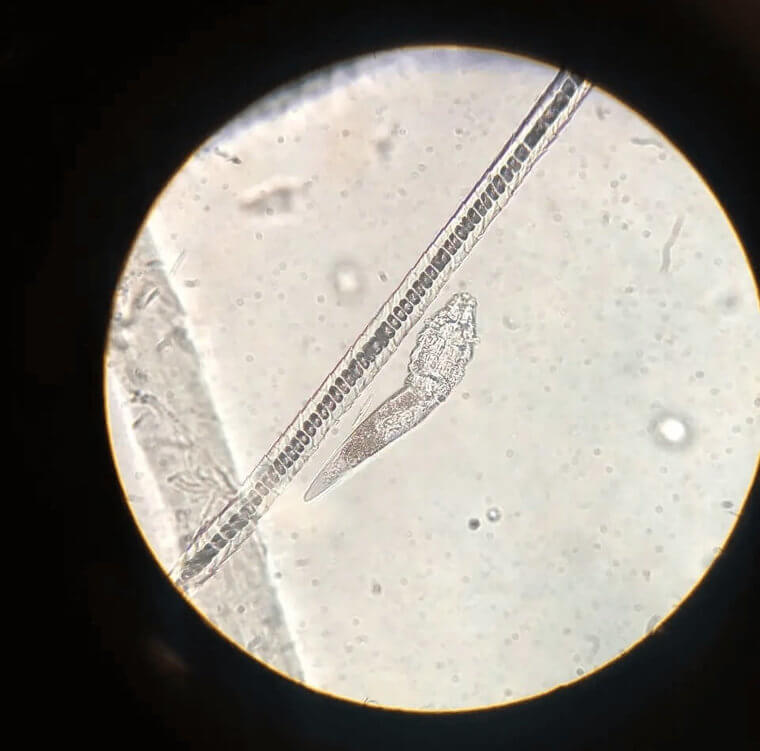
ajanafstad
Demodex, a type of mite found in our eyelashes, is likely the source of a variety of skin conditions. However, for most people, these little mites are benign hitchhikers. How do you feel about having little critters living in your eyelashes?
39. The Pink Inner Corner of Your Eye Offers Clues About Human Evolution
Have you ever wondered why your eyes have a pink corner? It has to do with evolution, to be sure. The small organ, which was once an inner eyelid, is tied to an evolutionary relic from our history.
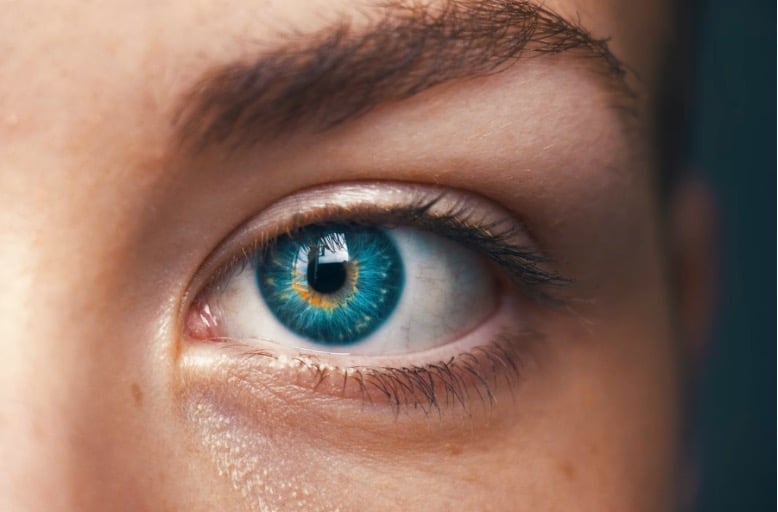
@amandadalbjorn/ Unsplash
Some birds and reptiles have a pink corner in their eyes that is very similar to ours. For them, it is a translucent inner eyelid. It’s likely we had a similar bodily feature, but after millions of years of development, there isn’t much left of it.
40. You’re More Bacteria Than Human
Once again, we are reminded that the quantity of bacteria in our body is on an entirely different scale. Our bodies contain far more bacteria than human cells, and this has been demonstrated time and time again.
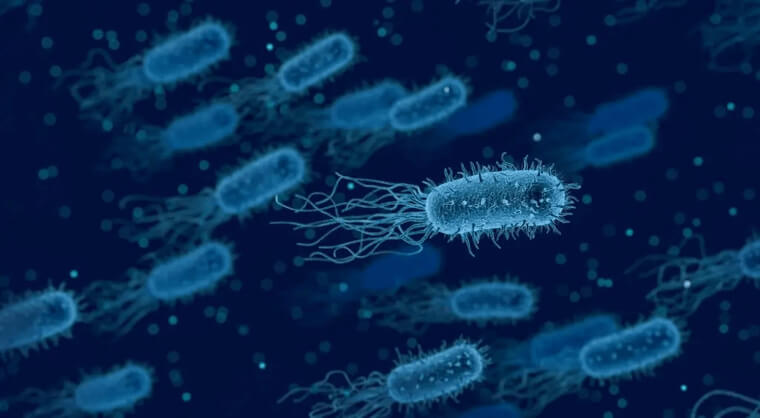
qimono
Despite the fact that these microbial populations may have a negative impact on our health, they are still understudied. Of course, there are good bacteria too, so we shouldn’t worry too much about the colonies we’re carrying around (at least, we hope we don’t have to worry)!
